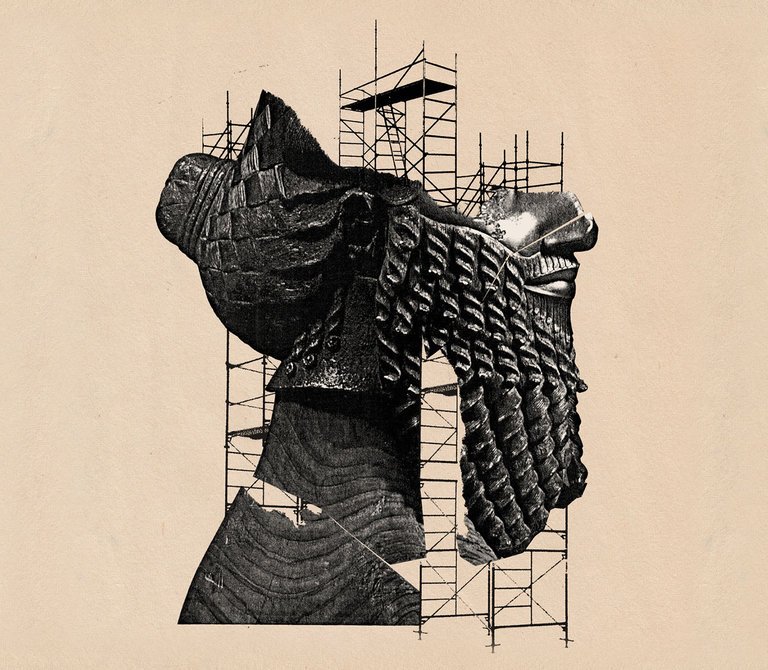BAGHDAD — In June 2014, the cover of Time magazine echoed a sentiment common among pundits and outsiders: “The End of Iraq,” it read. I am proud to say that three years later, thanks to the Iraqi armed forces and the Iraqi people, these predictions were wrong.
Since then, Iraq has steadily dealt defeats to the Islamic State, also known as Daesh, a vicious enemy that has threatened our entire region and killed innocent people across the world. Now, having liberated cities including Mosul, Tal Afar and Hawija, Iraq is poised to drive out Daesh completely. Millions of people, forced out of their towns by barbaric terrorism, are going back home. Schools are reopening and doctors and nurses are returning to health clinics. We are beginning the enormous task of rebuilding our nation.
Our people have made extraordinary sacrifices to liberate their land. Daesh thought it could exploit the vulnerability of the Iraqi state, but it underestimated the overwhelming desire of the Iraqi people for unity.
I had hoped that just as we united to defeat our enemy, we would unite to recover and rebuild. Many Iraqis were therefore shocked by the unilateral action of some elements of the Kurdish leadership — key architects of the 2005 Iraq Constitution, which enshrines and protects Iraq’s federalism — in holding an illegal referendum last month. This move, which directly contravenes the Constitution, is an act of deliberate division.
Worst of all, the referendum emboldens the remnants of Daesh. No effort for autonomy or self-rule can succeed if it is approached illegally. Unilateral actions violating the law threaten the stability of our entire country, and therefore our neighbors, as well.
As prime minister of Iraq, I am required to act in accordance with the Constitution to protect all of the Iraqi people and to keep our country united. To do so, the government has reinforced and restored what is prescribed in its federal mandate: that is, federal authority over national borders, oil exports and customs revenues.
The redeployment this week of Iraqi forces to parts of Kirkuk and other areas in northern Iraq is consistent with this approach. These are federal forces — army, counterterrorism, police and rapid deployment units — and their members come from Iraq’s many ethnic and religious groups, including Kurds. This deployment was not an attack on Kurdish citizens or on the city of Kirkuk; it was an Iraqi federal operation aimed at restoring federal authority to areas that were under government control until 2014.
I have instructed these forces to not provoke skirmishes or conflict. But they have a duty to protect citizens and defend themselves if they come under fire. Our orders to the armed forces are to secure federal facilities in Kirkuk and other northern areas, assist with the safe return of displaced people, and maintain vigilance against terrorist attacks. We have instructed local officials to ensure all public services operate as normal and improve service provision where possible.
Maintaining security will also entail ensuring economic stability. After years of conducting unconstitutional oil sales and pocketing the revenue, the Kurdistan Regional Government is on the verge of bankruptcy. This is a result of the corruption of a few Kurdish officials and their families. My government intends to redress the inequitable distribution of our national resources to discourage corruption in the Kurdish region, and protect the people there and in the whole of Iraq.
Just as Iraq united to defeat Daesh over the past three years, we now need to apply that same unity to our next challenges: reconstruction and building a democratic country where each citizen enjoys full access to the protection of the state.
I was elected prime minister in 2014 under incredibly difficult circumstances: A third of the country was overrun by terrorists, the economy was struggling, people were divided by sectarianism and relations with the wider world were strained. We have made great strides. In addition to defeating Daesh, we expect to achieve real gross domestic product growth of 2.9 percent in 2018. This year we were able to issue two international financing bonds. But restoring services to cities and rebuilding communities is not something Iraq can achieve on its own. We will need investment and financing to ensure that we not only recover, but prosper.
For the sake of all Iraqi citizens, we cannot allow the seeds of discord to take root again. I urge the leadership in Iraqi Kurdistan to come to its senses. Iraq cannot and will not recognize unilateral, unconstitutional actions taken by a few against the will of the nation. Personal profiteering must be put aside to ensure national prosperity. On behalf of the people of Iraq, I call on the Kurdish Regional Government to acknowledge the authority of the Constitution and to enter dialogue on this basis.
The federal government of Iraq seeks continued support and cooperation from our international partners. For now, we urge regional powers and other outsiders not to interfere in our affairs. Iraq must be able to demonstrate its coming of age by using democratic structures to solve internal disputes. In the medium term, the international community can transition their support from security-based to economic-based. Initiatives that build trusted, efficient and democratic forms of local governance across Iraq, including the Kurdish region, are crucial. The fair distribution of resources must form the bedrock of our approach.
Achieving this as one Iraq, with a united vision of our place in the world, is best for our stability. And a stable Iraq is what is best for the stability of the region and the world.

